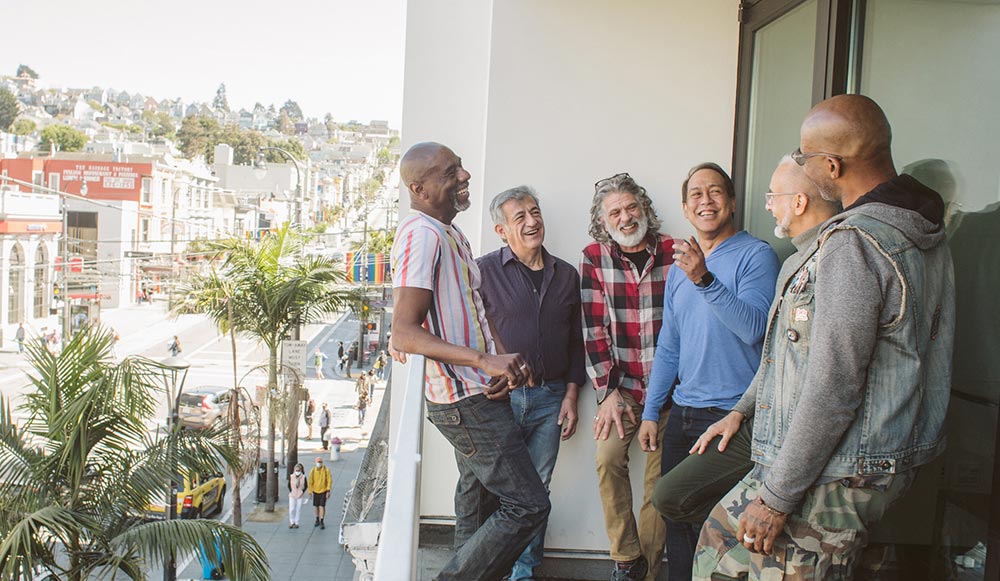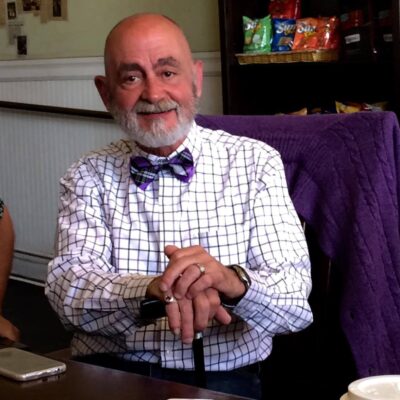Who “counts” as a long-term HIV survivor?

It’s not a new issue, but one that sparks many conversations. Who “counts” as a long-term HIV survivor? And who qualifies for the programs and services designed for people aging with HIV, and/or people who have lived many years with HIV (or AIDS)?
For the first time, the federal government has outlined definitions for some key populations, through the HIV/AIDS Bureau (HAB) of the U.S. Health Resources and Services Administration (HRSA) to Ryan White HIV/AIDS Program (RWHAP) recipients. They are:
Older adults [with HIV]: People with HIV aged 50 and older
Long-term survivors: Adults who acquired HIV prior to the availability of ART
Life-term survivors: Adults who acquired HIV at birth or as young children
“Long-term Survivors” refers to those adults living with HIV who acquired the virus pre-1996, i.e., before the advent of highly active antiretroviral treatments (HAART); “Older Adults” with HIV refers to people over the age of fifty who acquired HIV more recently than 1996, after the advent of HAART. Importantly, Ryan White HIV/AIDS Program funds may be used to support people who are aging across all of these categories.
These definitions mark “the first time clarification has come from the federal government,” said Vince Crisostomo, director of Aging Services at San Francisco AIDS Foundation. “This helps to clarify who we are talking about. Forty-three years into the HIV/AIDS pandemic and over ten years since SFAF started the Elizabeth Taylor 50-Plus Network, the demographic has gotten more complex. The definitions provide some clarity for program and service planning.”
“Long-Term Survivors have a unique lived experience in their history of living with HIV,” said Crisostomo. “Someone newly diagnosed will hopefully not experience what we did–and will have access to effective treatment that hopefully will not have the side effects that were common with the early drugs, and remain virally suppressed and lead relatively normal high quality of life.”
For programming at San Francisco AIDS Foundation, Crisostomo clarified that they use the term “long-term survivors” to refer to anyone–whether living with HIV or HIV-negative–that has lived through the height of the AIDS epidemic.
“That’s one of the reasons we use Plus as opposed to + in 50-Plus in ‘Elizabeth Taylor 50-Plus Network,’” he said. “We want to be more inclusive and speak to other factors that our participants may be dealing with.”
The reasoning is clear: Even though they evaded contracting the virus themselves, the HIV-negative long-term survivors experienced the same losses and griefs, often caring for lovers or others who had HIV/AIDS, watching our community suffer and dwindle. Their trauma is just as real as it is for HIV-positive long-term survivors.
David “Jax” Kelly, JD, MPH, MBA, currently the President of Let’s Kick Ass, Palm Springs, an ASO (AIDS Service Organization) serving Southern California, sees the newly promulgated definitions as a positive step. “I am glad that HRSA continues to evolve as does the community living with HIV. As you know I recently graduated with a Master of Public Health degree from USC, and there were several times when the language of the public health community grated with my experience as a community member,” he said. He did, however, take exception to my statement that “the federal government has outlined definitions for some key populations.”
“I could restate that as ‘Washington wants to tell us who we are.’ But I know the reason for the definitional language. Its purpose is to write policy that addresses public health concerns. Its readers are legislators, public health researchers and policy officials. There is a nod to more progressive language: ‘older adults’ instead of ‘seniors,’ for example. I think the jury is still out on the use of ‘survivors,’ as I see more people in our community embracing ‘thrivers,’ which, in my opinion, does not have an equivalent in public health lingo.”
Jax explained further that “At LKAPS we are mostly a community of ‘Older Adults [with HIV]’ and ‘Long-Term Survivors.’ To be more welcoming and inclusive I have often described our members as witnesses to the AIDS plague years… because in Palm Springs there are many people who lost friends and relatives to AIDS in the 80’s and 90’s before ART. They may suffer from similar trauma from these experiences, although they are not HIV-positive. Because our members are mostly over the age of 50 they are very likely witnesses to the plague years. Some did not seroconvert until after ART was discovered, but they may have personal stories about coming out when no one was sure whether the love they made was unsafe or memories of taking care of someone who was wasting away before their eyes.”
“As we age and the medications keep us alive,” Jax concluded, “I think less stigmatizing terms will evolve in the public health community. And I expect the more evolved of my fellow public health colleagues will be able to navigate the bureaucratic and community spheres using language appropriate for either.”
When I asked Gregg Cassin — founder and administrator of the Shanti Project’s ten-year-old “Honoring Our Experience” program (HOE) — what he thinks of the new definitions, he replied, “The challenge with responding [to your questions] is that the defining of these different categories is very personal and sensitive to the people from these communities, OUR community. I prefer the freedom of self-identification, especially around issues of long-term survivorship. I understand the need for different definitions regarding collecting data and distributing funding, etc. But for my personal needs in being of service to the community, I want to acknowledge and honor the importance of connection and belonging, and enable people to gather with communities that they share that sense of belonging with, no matter which of those definitions they fit.
“There is so much isolation and marginalization in the many communities affected by HIV,” Gregg continued. “So when people gather for an HOE retreat or a group, I like to acknowledge that this work was created by and for long-term survivors, [making] a safe place to share that experience, a place where decades after the dust had finally settled, and we were piecing together our lives, we could look at one another and say ‘that really happened’ and acknowledge the grace and courage and noble response that our community pieced together amidst the horror. So although my work deals with long-term survivors, we welcome those who feel a connection with this community. We are often separated in these types of programs, sometimes by funding and sometimes by our own comfort level. But something profoundly healing takes place when we gather as one community. These new definitions, although necessary for data collection and funding, really won’t change the work we do with Honoring Our Experience.”
Paul Aguilar, SFAF’s Long-Term Survivors Community Liaison, had a much more personal reaction to these new federal definitions. “It’s really encouraging to see people are starting to pay attention to those of us who are aging with HIV,” he said. “As someone who’s lived with HIV for a long time and fought for others like me, this is huge. Being officially recognized like this will probably help us get more funding through local aging programs and work more closely with HIV groups and services for older adults. With all the progress in HIV treatment, more and more of us are getting older, and our specific needs are finally being recognized. It’s about time!”
Personally, I concur with Paul — it’s about time! When Vince, Paul, Harry Breaux, Michael Rouppet, and I wrote The San Francisco Principles 2020, one of our first and most important discussions was how to define “long-term survivor” for the sake of the Principles. We agreed upon the same definition issued by HRSA HAB — those of us who were diagnosed with HIV before the availability of the “cocktail” in 1996. For me, the fact that HRSA’s definition comports with the Principles’ definition confirms that we were on the right track. The hope is that the new definitions will lead to actions based on the realities lived by HIV-positive folks. Like Gregg, I value opportunities to gather and share experiences with groups comprising the various experiences of people living with or affected by HIV, but I also recognize that each group presents different needs and obstacles to be addressed. Let’s hope this new action by HRSA HAB will help to make more funding more readily available through more agencies for all of us.










